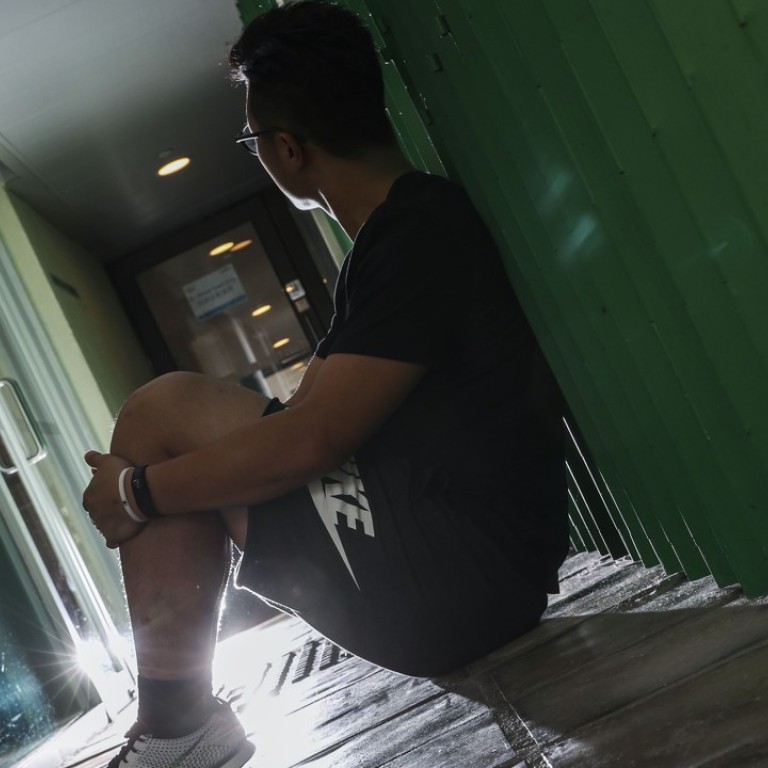
With at least a third of 15-year-olds falling victim, is it time for anti-bullying laws in Hong Kong?
The city is the worst performer in an international survey on the percentage of children being bullied at least a few times a month. With a fiercely competitive education system, growing cyberbullying, and special needs children vulnerable in mainstream schools, calls are growing for tougher legislation
Samuel, 14, is partially deaf in one ear, and sometimes cannot hear what his schoolmates are saying or has difficulty expressing himself. He also has a lazy eye.
He became a magnet for bullies from the time he was in primary school.
“When I was in Primary Three, during a visual arts class, a few of my classmates threw hardened clay at my head,” recalled Samuel, which is not his real name.
On other occasions, bullies filled his school bag with sewage left over from an experiment, and pushed him down a flight of stairs when he refused to disclose a secret.
The bullying continued in secondary school, where it came accompanied by foul language. Samuel’s grades slid, he began missing classes, and when he became lethargic and easily agitated, he was hospitalised and diagnosed with depression.

Bullying has made the news in Hong Kong regularly, with both boys and girls turning up as victims and the bullies.
Why stalking, cyberbullying and doxxing are so harmful
In a recent court case, two girls aged 12 and 15 admitted being part of a group which attacked a 14-year-old girl who was slapped and had her pubic hair burned.
Social workers and educational psychologists say bullying is often underreported, due to victims’ fears and bystanders not speaking up.
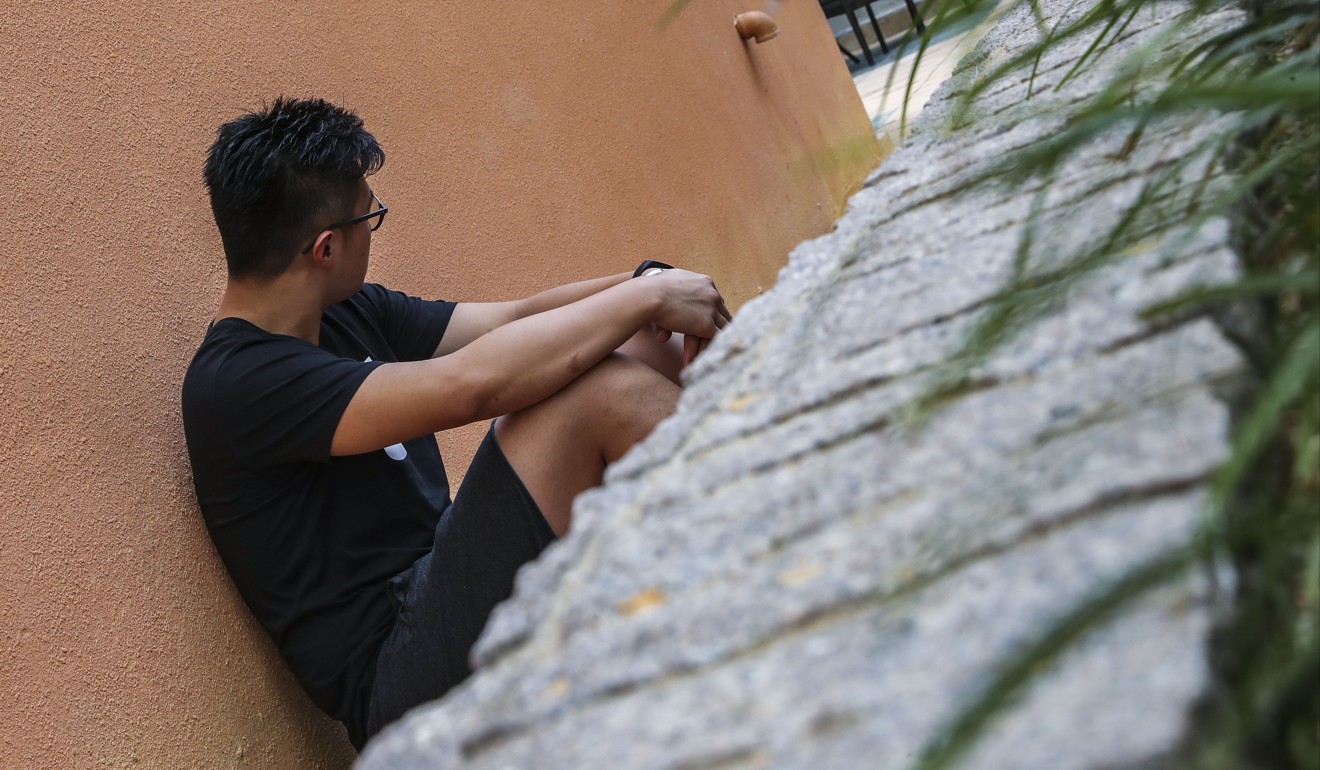
Some have also noticed a link between bullying and Hong Kong’s integrated education policy which, since the late 1990s, has encouraged children with special education needs to attend mainstream schools and mix with other children.
In the 2017-18 school year, about 45,360 children with special needs, including those with attention deficit hyperactivity disorder (ADHD) and autism, attended mainstream public schools, with another 7,800 in special public schools.
Time for legislation to protect our young from cyberbullying
Rocky’s dyslexia and ADHD led to regular conflicts with teachers and he ended up changing secondary schools three times.
The son of divorced parents, he was 12 and at his second school when he was bullied and subjected to verbal abuse. He noticed that special needs children were regularly beaten and verbally abused by gangs of notorious troublemakers, and so he decided to join the bullies.
“We’d ask the special needs students to hit other special needs children, or we’d hit them and tell them to blame someone else,” he said.
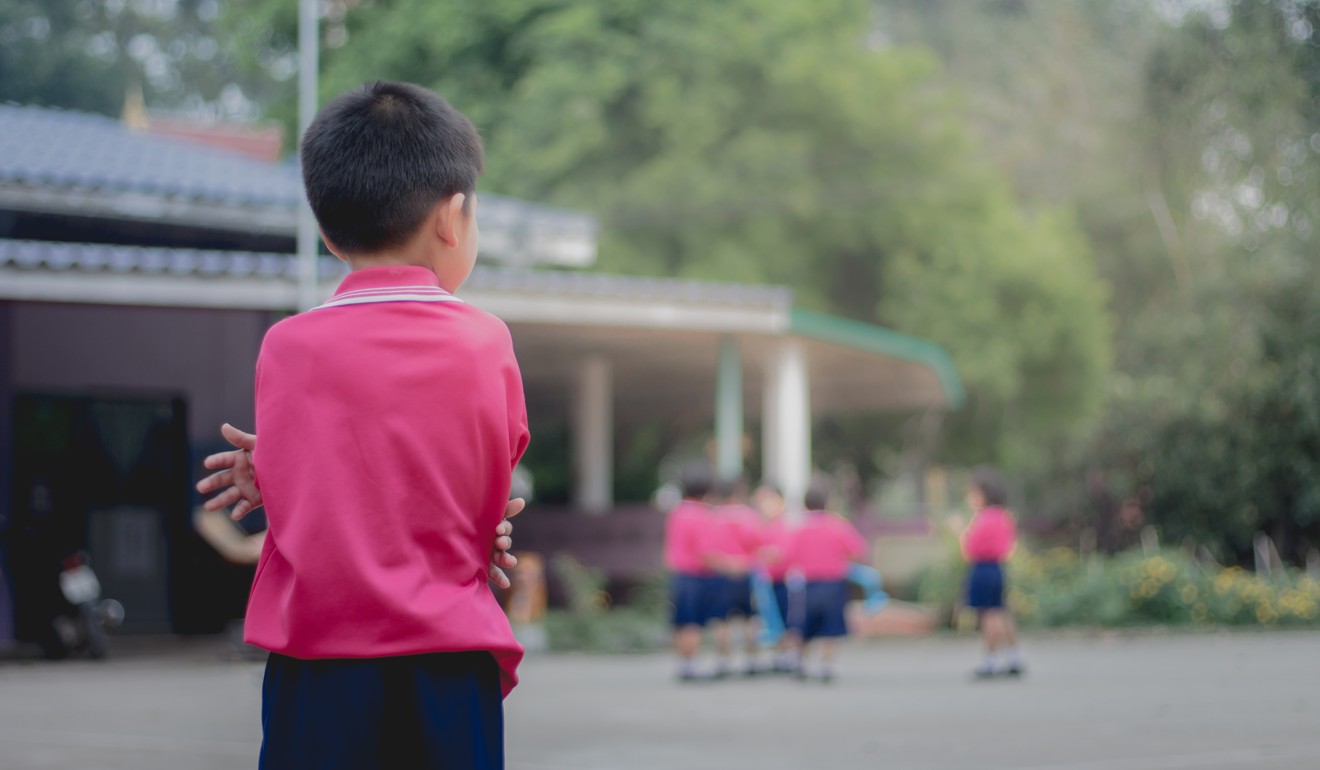
He also began smoking and drinking. Because of his poor behaviour and results, he was asked to leave the school.
Looking back, Rocky, which is not his real name, felt the teachers were not adequately trained and sensitive enough to handle children with special needs.
“The teachers would often single out special needs students, asking us aloud if we had taken our medication, or the teachers would let us off when it came to punishing students,” he said.
But that only made these students easier targets for bullies.
Cyberbullying is the bigger menace for schoolchildren
Carol Lee Kit-lo, a service coordinator for Baptist Oi Kwan Social Service, said special needs children’s weaker social skills and poorer ability to manage their emotions made them not only easy targets, but susceptible to bullying others.
Another challenge is the city’s competitive education system, according to Dr Alex Chan Chi-keung, an assistant professor at Shue Yan University’s department of counselling and psychology.
He knows of youngsters who take away their classmates’ study notes to prevent them from revising for tests.
“There is the mentality that in order to succeed, you have to do it at the expense of others,” he said.
And when it comes to group projects that are graded, special needs children sometimes find themselves excluded because they might affect the grade.
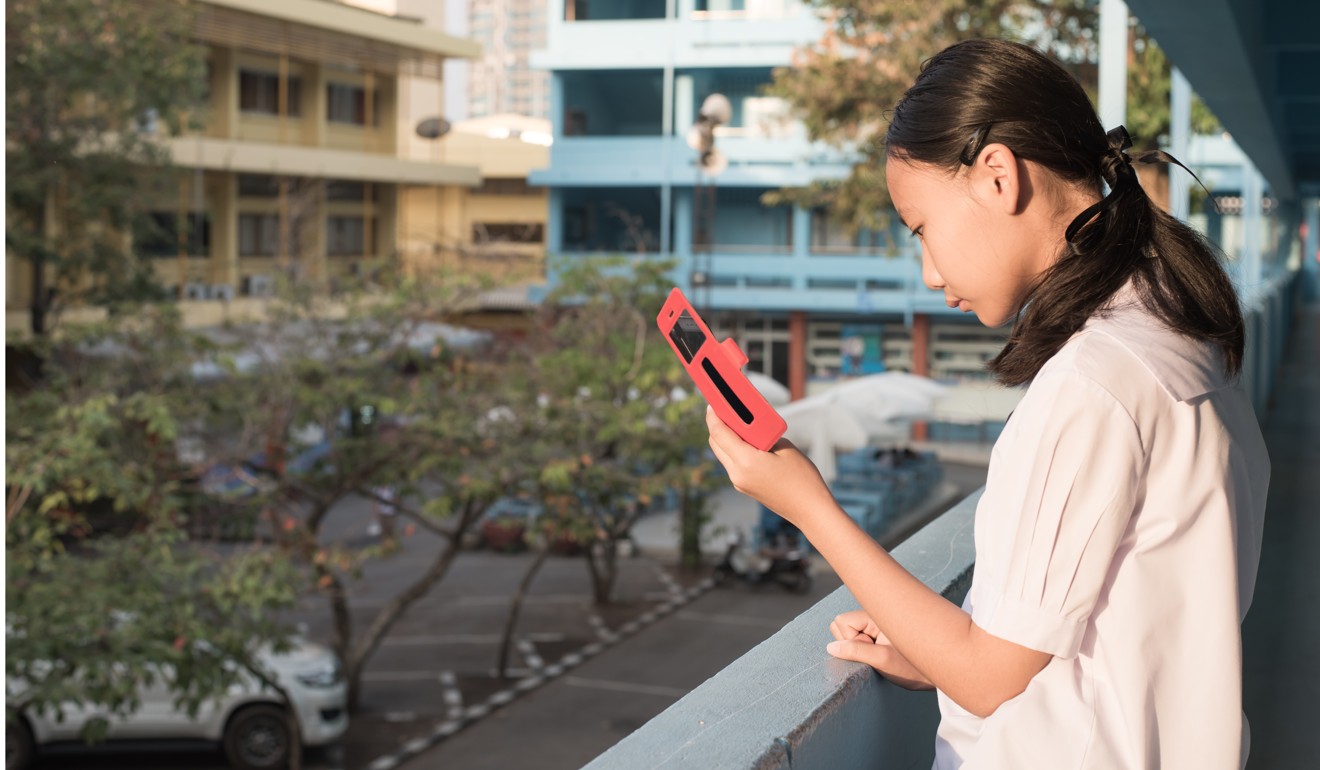
Cyberbullying has become a growing concern too.
In 2016, a top economist filed claims against the English Schools Foundation after his daughter was bullied in 2014 while attending Kennedy School. After the girl’s Gmail and Google Drive were hacked, malicious emails were sent in her name to her friends and family, and several files, including her schoolwork, were deleted.
Schools in Hong Kong must stand up to bullying or risk being enablers of such behaviour
A study last year by Professor Dennis Wong Sing-wing, associate dean of the College of Liberal Arts and Social Sciences at City University, found the most common form of cyberbullying among secondary school pupils was the modification of images for mockery.
A Polytechnic University survey earlier this year found that more than half of Hong Kong secondary school students had personal information and photos splashed across social media and instant messaging apps without their consent – a practice known as “doxxing”.
Chan said cyberbullying is harder to track because it happens online. And when it came to making others the butt of pranks and shaming, online bullies seemed to have no sense of limits.
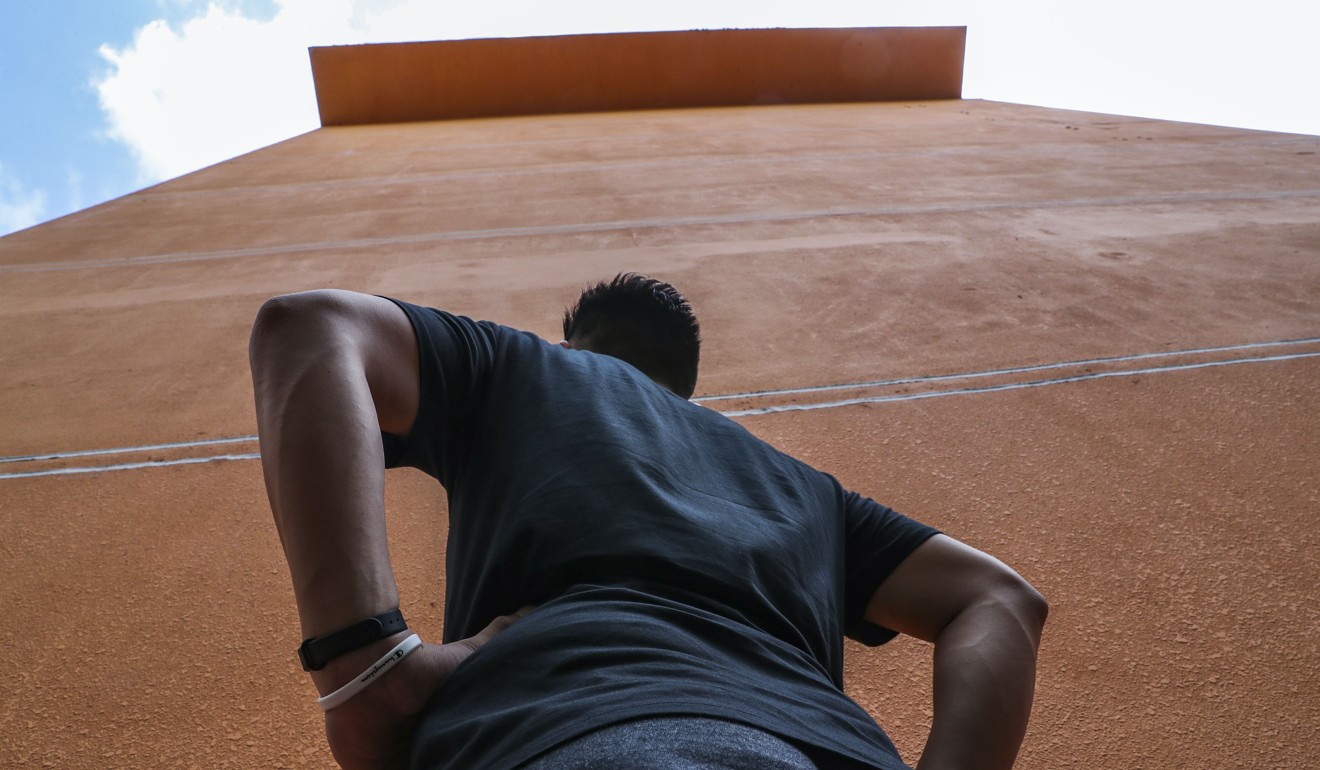
“It is easier to say mean things, such as telling people to die,” he said.
Everyone involved agrees that more needs to be done, by parents, teachers and witnesses, to tackle bullying in all its forms.
Clinical psychologist Dr Quratulain Zaidi urged parents to be alert for mood changes, as bullied children may turn quiet and begin to isolate themselves.
“Unfortunately I am seeing children as young as seven years old and that’s worrying,” said Zaidi, who has been in Hong Kong for six years and runs a private practice in Central.
Service coordinator Lee urged parents to listen to their children – both those who are bullies or victims.
Set up independent body to probe complaints of bullying, youth suicide prevention group urges Hong Kong officials
“Many times parents tell their children to ignore bullies, but the matter might be a lot more severe,” she said. “The same for the bullies – we cannot just punish the bully and neglect counselling.”
Experts say children who become bullies may lack warmth or affection at home, or may have suffered bullying themselves.
Lee’s NGO has a programme that recruits student ambassadors who help to check on troubled pupils and alert school authorities to bullying. She said it was highly effective because children tended to confide in their peers.
She said teachers needed to be alert to the early signs in order to nip bullying in the bud, but having one social worker per primary school was simply not enough.
Chan said children needed to learn empathy, compassion and forgiveness, and the importance of speaking up if they witness something wrong.
He said Hong Kong could take a page from the Netherlands, which scored the lowest percentage of students reporting bullying in the Pisa survey, at 9.3 per cent.
Dutch children are taught to speak up if they witness bullying, and that it is everyone’s civic responsibility to help put a stop to wrongdoing. Chan said that in Hong Kong, on the other hand, few witnesses were willing to speak up.
An Education Bureau spokeswoman said the bureau required all schools to show zero tolerance for bullying and to implement proper reporting mechanisms and handling procedures.
She said its annual survey showed the number of students involved in school bullying cases had dropped from about 260 in the 2012-13 school year to 120 in 2016-17.
Personal data of more than five in 10 secondary school pupils disclosed online, as study sheds light on ‘doxxing’ in Hong Kong
The bureau did not consider it necessary to introduce anti-bullying laws or a compulsory reporting mechanism, she said.
But some in the community want tougher legislation, especially to tackle cyberbullying.
Professor Edward Chan Ko-ling of Polytechnic University’s department of applied social sciences told a recent symposium that the law needed to catch up with what was happening.
“We can only use existing laws, such as ‘access to a computer with criminal or dishonest intent’, but this is outdated, with some law enforcers not considering a phone a computer,” he said. “In fact, smartphones can already perform most functions of a computer.”
Although the number of cyberbullying complaints almost doubled from 26 cases in 2016 to 50 last year, this was not significant enough to warrant new laws, said Privacy Commissioner for Personal Data Stephen Wong Kai-yi at the same symposium.
“Legislation depends on the priority, seriousness and urgency,” he said.
A Social Welfare Department spokeswoman said it supported non-governmental organisations in the running of preventive, developmental and remedial services for young people, including 139 integrated children and youth services centres.
Since his troubles in school, bullying victim Samuel is on the mend. His parents were initially concerned about his sliding grades and absenteeism, but their priority now is for their son to get well.
He is seeing a psychiatrist, responding to medication for his depression and has returned to school.
“I’m very happy to see his improvement,” his father said.
As for Rocky, things finally began to look up at his fourth secondary school, where he met more understanding teachers and a social worker who devoted time and effort to helping him.
He took part in sports and other activities, quit smoking and drinking, and attended tuition classes to improve his grades.
Now 19, Rocky recently obtained his Diploma of Secondary Education exam results and did well enough to enrol in a Taiwanese university.
“I was part of the reason for my parents’ divorce, so I was really glad to see them both come to my graduation and becoming closer,” he said.
Additional reporting by Evanna Gurung and Michelle Wong

